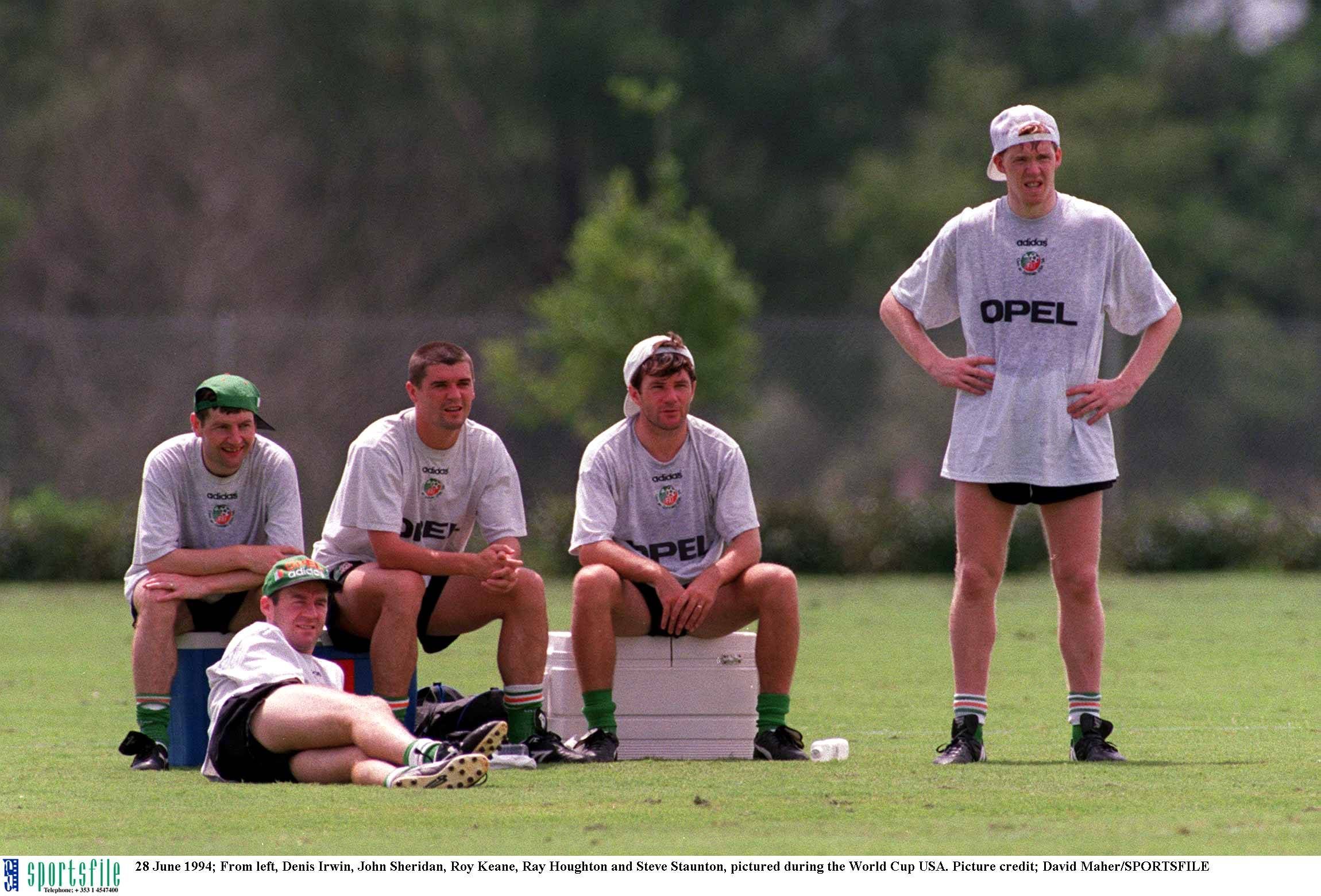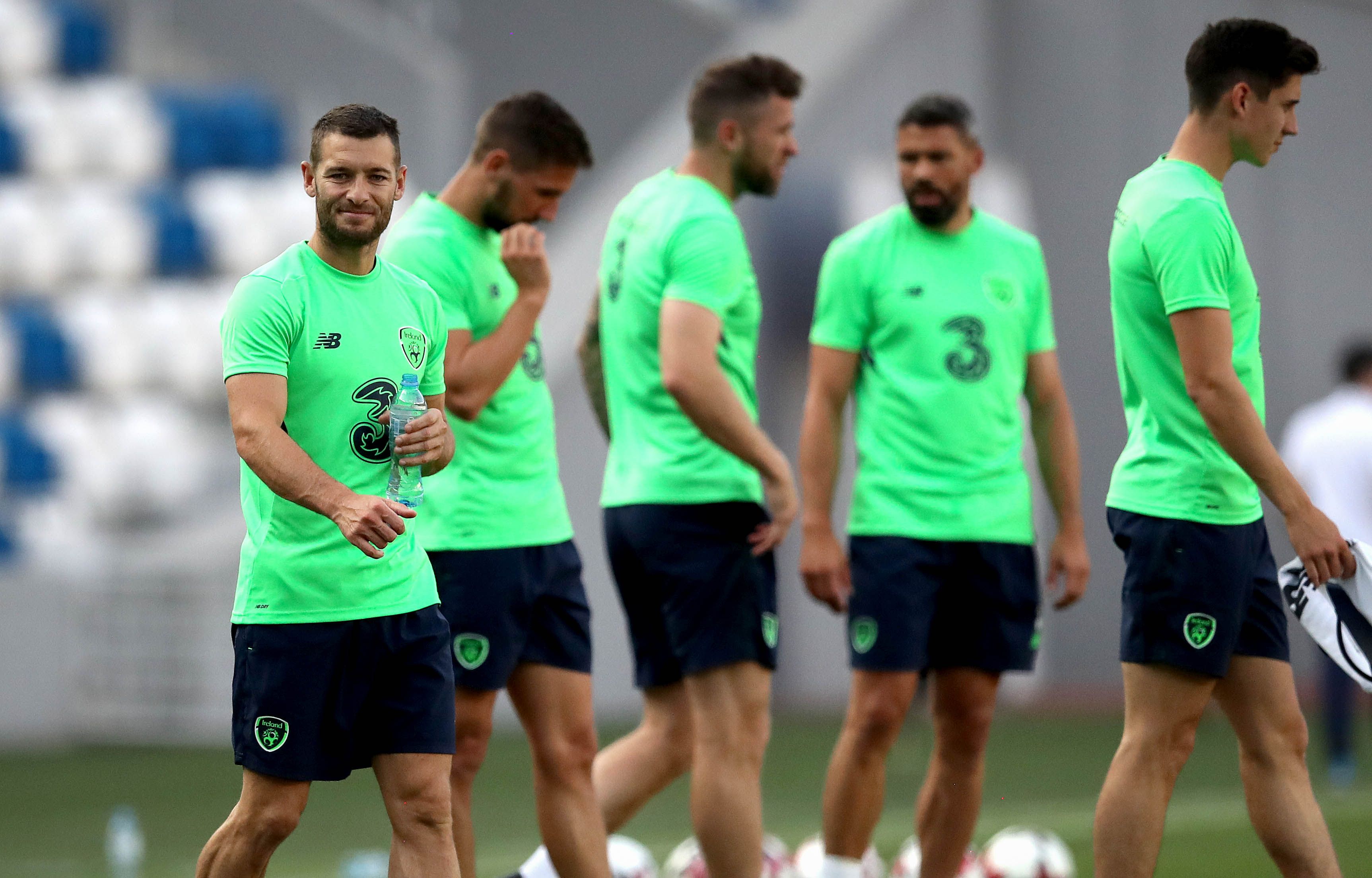Before Ireland had even finished playing in Tbilisi on Saturday, it had already been widely agreed that this was one of the worst Irish performances of recent times.
Nobody could argue that the 1-1 draw was anything but terrible, but the idea that this was a deviation from the norm seemed to be its own kind of seductive fantasy.
Since they beat Austria in Vienna, Ireland have taken three points from their last three games thanks to a series of uninspired performances. The great position they had put themselves in at the end of 2016 looks in jeopardy before the game against Serbia in the Aviva on Tuesday.
The draw in Tbilisi on Saturday night was against the worst team in the group so it was less excusable. especially as Ireland enter into the decisive stage of the campaign looking tired and short of ideas. After Shane Duffy put Ireland ahead, there was a collective brain freeze which left Georgia feeling unlucky not to have won.
The first of the three games in 2017 was a scoreless draw at home to Wales and anyone who was there will angrily slap down those who claim there have been duller nights watching Ireland in recent years.
When Ireland have performed well recently or, to be more precise, when the long periods of unambitious, safe and fearful football have been briefly interrupted, it has usually been down to one player, Wes Hoolahan.
Everybody knows what Hoolahan can and can’t do on a football field, but the idea that his weaknesses outweigh his strengths on tough nights away from home don’t stack up when Ireland play, as they did in Tbilisi, as if they have no strengths.
The statistics told a story which the flow of the game didn’t seem to dispute. Ireland had 31 per cent possession. They completed only 152 passes which seemed worse against a side like Georgia than the 94 completed they managed against Serbia at the start of this campaign.
That was another game where a quick Ireland goal seemed to lead to some strange collective reasoning in the Irish team that no harm has ever come to any side who stops playing when they take an early lead and instead lets the opposition have the ball.
Before the game in Tbilisi, Martin O’Neill stressed the need for Ireland to keep the ball in order to overcome the forecasted high temperatures.
In the build up to the game, there was so much talk of water breaks and the heat that it was hard not to wonder how far have we come as a football nation – or indeed as a people – that nearly 25 years after Steve Staunton wore his baseball cap backwards during USA ’94, we were still obsessed with how to cope in high temperatures?
Happily the heat had dropped by the time the game kicked off so there was no need for water breaks or for Ireland to implement O’Neill’s radical plan based around ball possession.
We will never know how that would have gone if it had still been hot in Tbilisi or if Duffy’s early header hadn’t given them the lead.
Maybe Ireland would have knocked it around stylishly, but that would have been a real break with tradition.
The game began with Ireland scoring in a move which was in keeping with their finest traditions and it ended a long, long time later with Duffy winning another header in the box from a Darren Randolph free-kick, knocking it down to Aiden McGeady who took a touch and then hooked the ball over the bar.
In between, there was very little. This was Ireland as they often are and while criticising O’Neill for the way he sends his players out to play is justified. Ireland’s problems are deeper and predate whatever manager they employ.
The fact that Hoolahan, at 35, is still seen as the only man who can change a game is evidence of that. Ireland have some other good players like Harry Arter and Robbie Brady, but so far they seem to be less able to break free from the rigid, negative approach of the side.
Hoolahan is a more instinctive footballer, but having been ignored during his prime by Giovanni Trapattoni, he may also feel he has nothing to lose.
The bleakness of the Irish football landscape can be glimpsed so often when he isn’t around and Ireland play without imagination or flair.
Things might be different on Tuesday night. O’Neill has drawn the best from his players on big occasions and he will need to do so again. It’s when the manager is at his best and Ireland will need to be. If Hoolahan plays the chances of that happening increase.
Wales’s victory against Austria on Saturday night has increased the pressure. O’Neill has no Ben Woodburn to send from the bench. Instead he must depend on a player twice Woodburn’s age.
Those who say it is ludicrous to claim that a 35-year-old Championship player can be the saviour of Irish football are right. That is the dismal point. It is ludicrous, But that doesn’t mean it isn’t true.














































